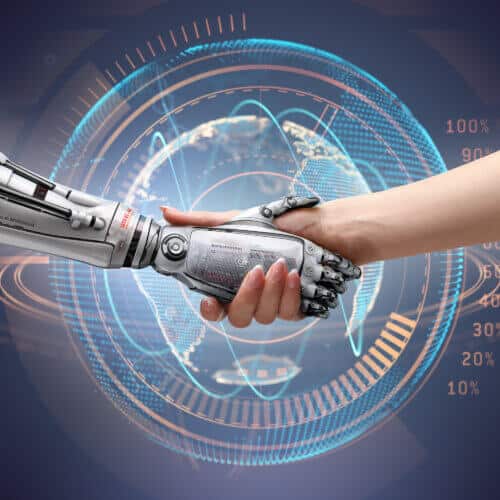At the head of the alliance's leadership sit the world's leading leaders in industry, government, academia and civil society, which guides the alliance. The chairmen of the committee are: Arvind Krishna, Chairman and CEO of IBM and Vilas Dehar, President of the Patrick J. McGovern Foundation

The World Economic Forum today announced the launch of the Global Alliance for Artificial Intelligence Activities (GAIA), a new initiative that aims to accelerate the adoption of artificial intelligence, in a transparent, fair and reliable manner throughout the world.
The flavor of AI can make organizations 40% more efficient and by 2035 will represent an economic value of about 14 trillion dollars. But the greater the potential, the greater the risks arising from insecure or unethical AI systems. At the head of the alliance's leadership sit the world's leading leaders in industry, government, academia and civil society, which guides the alliance. The chairmen of the committee are: Arvind Krishna, Chairman and CEO of IBM and Vilas Dehar, President of the Patrick J. McGovern Foundation.
As in recent controversies regarding facial recognition, automatic decision-making and tracking of those confirmed for Corona, the royal intelligence also requires a strong involvement from citizens and government bodies, based on the fact that the artificial intelligence is built in an ethical way and so is it used.
Recognizing this need, over 175 organizations have proposed ethical principles for artificial intelligence. The GAIA is a new multi-partner collaboration platform designed to accelerate the development and adoption of smart tools worldwide and across industry sectors. The alliance brings together over a hundred leading companies, governments, international organizations, non-profits and academics all united in a commitment to maximize the benefits of artificial intelligence while minimizing its risks.
• Artificial intelligence may contribute over $15 trillion to the global economy by 2030 while dramatically improving the lives of billions, but it will only achieve its potential if used responsibly.
• The alliance brings together over 100 companies, governments, civil society organizations and academic institutions to accelerate the adoption of AI for the global public interest.
• Alliance members will work together to identify and implement the best tools and practices available for ethical use and to maximize its benefits for all
The Alliance is supported in its mission by leading quants committed to driving cutting-edge projects focused on key impact areas and unmet needs, including Global AI, the AI Institute, AI and You, and EqualAI. Initial areas of focus include:
- Educating government and industry leaders about risks, opportunities and best practices in the field of artificial intelligence
- Fostering international peer learning among legislators focused on AI
- Driving responsible product design and use in AI-driven organizations
- Development of a certification mark for responsible AI systems
- Identifying and reducing bias in AI systems
- Increasing inclusion in the AI ecosystem and expanding the utility of AI to underserved groups
- Opening a window to justice through the application of AI in legal systems
- Leveraging AI to Accelerate the Sustainable Development Goals
- Preparing citizens for the future of AI and empowering them to help shape it
Arvind Krishna, Chairman and CEO of IBM and Co-Chair of the Alliance Leadership said: "It is an honor to co-lead the GAIA Global Alliance and to contribute IBM's expertise in AI ethics and advance the collaboration. I'm sure that together we can make the promise and benefits of responsible AI a reality in our society."

2 תגובות
Like any international agreement in recent years - the rules will only apply to Western countries, while China will receive an exemption, just like in Kerry's ridiculous Paris agreement.
These international agreements would be fine in a perfect world where all countries are functioning democracies.
But this world is not perfect, and most of the countries in the world are not democratic - therefore these agreements only make the situation worse, since they weaken the democratic countries that play by the rules, and they strengthen the dictatorial countries that obey the rules.
Just like the Paris Agreement, which paralyzed the economies of the West, strengthened China's economy, worsened the pollution there (they produce electricity from Australian coal without being ashamed and without receiving any criticism) and did not contribute in the least to the decrease in the carbon emissions of the participating countries (as evidence - the US met its emission targets carbon even after leaving the Paris Agreement).
The goals that the world alliance aims for are reminiscent of utopian stories of equal rights for all, world order, world justice, etc. Without going into the exceptions, in everyday life we come across a range of different responses from people, each of whom claims that this is the correct response in the given situation. How will they program and maintain a system that will know how to deal with an infinite number of complex conflicts, in different places and cultures, at different times? Ones that require continuous interaction with dozens of decision nodes? Reminds a bit of the dilemmas that arose in the science fiction series men of interest. Do we as humanity have an "intelligence" model that we all agree on as a universal tool before approaching the development of AI?